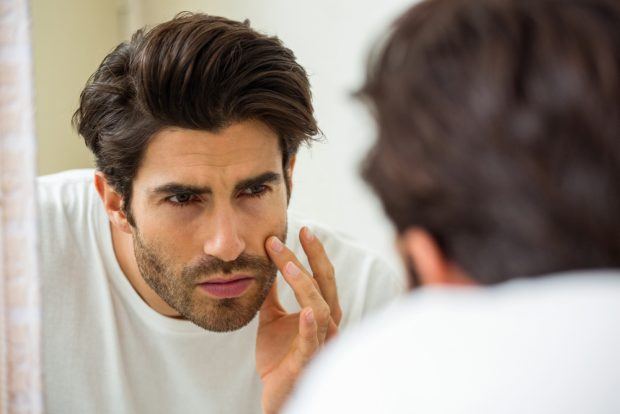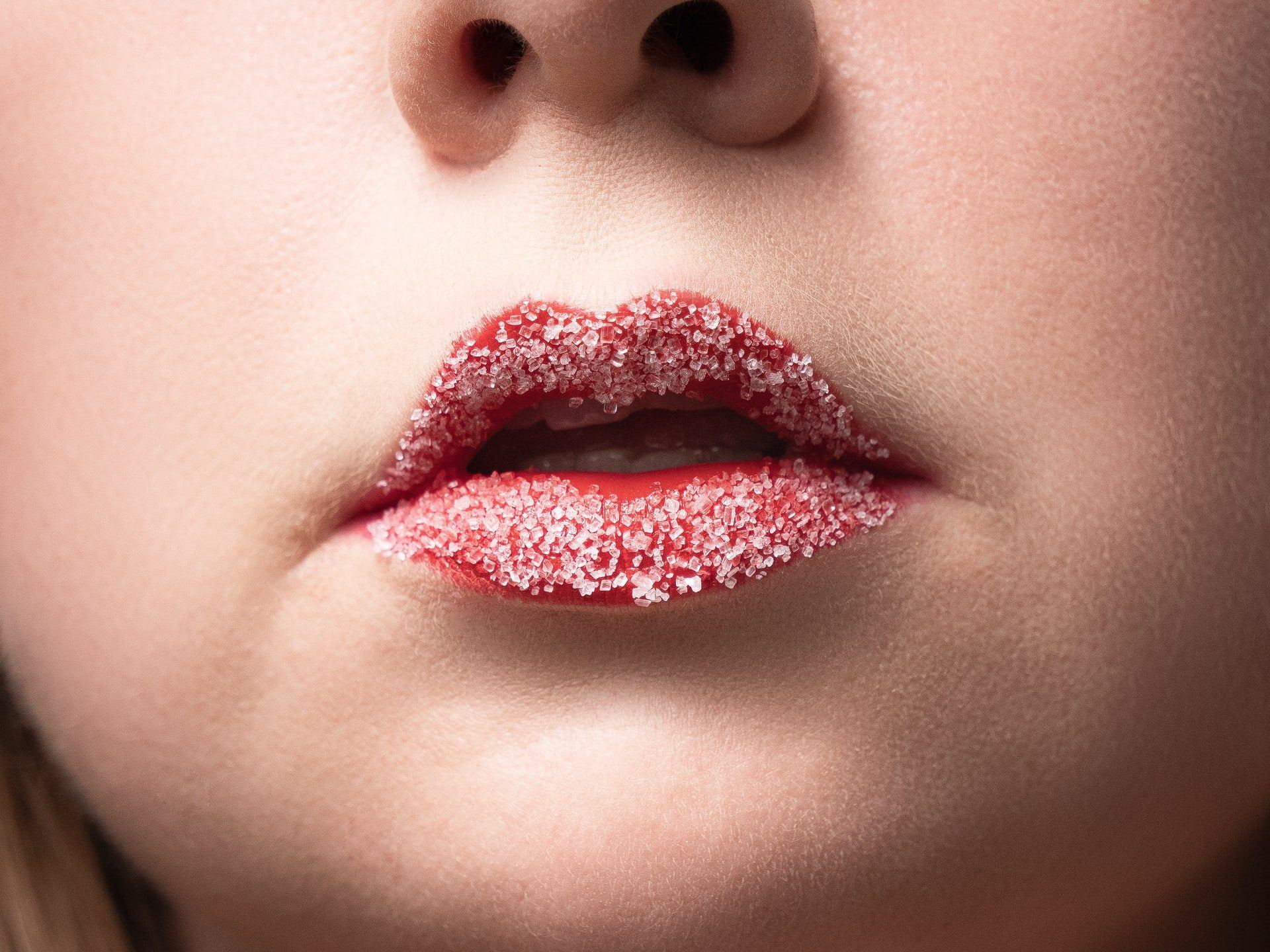When we think about the effects of sugar, we primarily focus on how it affects our weight and physical health. However, considering the fact that the skin is the largest organ of the body, perhaps we should also be looking at how our favorite sweet treats are having a bad effect on our skin? Whether it’s prematurely aging us or causing flareups, the sweet side of our diets isn’t the kindest to our skin.
Sugar and Skin: What’s The Link?
The World Health Organization recommends that adults and children keep their daily intake of free sugars to less than 10% of their total energy intake. How much do you want to bet that you’re likely eating way more sugar than that?
Sadly, there is sugar in literally everything and if we’re not careful, we can end up consuming too much of it, wreaking havoc on our skin.
Too much sugar can trigger a chemical reaction called glycation. Glycation occurs when the excess sugar in your bloodstream binds to proteins, which then results in molecules called advanced glycation end products (AGEs) which end up, well, aging you. For instance, a study published in AGE found that individuals with higher glucose levels were thought to be of higher perceived age.

wavebreakmedia/shutterstock
A diet high in sugar can result in more AGEs and the more AGEs there are, the more damage done to your skin. AGEs can cause damage to collagen and elastin – the two proteins in your body that help to keep the skin looking supple and firm. Additionally, AGEs can also trigger free radical formation, oxidative stress, and inflammation, all of which can leave the skin looking aged, dull, and dry.
How to avoid sugar face
If you’re worried about the effects of sugar on your skin (and your health), then we have a few ways you can improve your diet and keep your skin looking sweet.
1. Watch out for hidden added sugars
It can be hard to completely rid your diet of sugar, especially because sugar is literally everywhere – even in fruits and vegetables.
Therefore, our advice is for you to keep an eye out for hidden sugars as these are the ones that are often added to foods, and they’re also the most responsible for all of sugar’s less-sweet effects on your body. These sugars come under many different names: fructose, barley malt, high fructose corn syrup, dextrose, fruit juice concentrate, maltose, maple syrup, and molasses.
The best way to avoid them is by reading food labels and staying clear of any foods that list them. Also, if the first ingredient is listed as sugar, then just put the food down and walk away because you’re essentially eating a lump of sugar.
2. Get enough sleep
Have you ever noticed how you tend to crave sugar when you haven’t gotten enough sleep? That’s because sleep deprivation affects your hormones, increasing levels of the hunger hormone gherlin, causing you to crave and consume more sugary foods. This of course increases the risk of glycation, thus increasing the chances of premature aging in your skin.
If you’re having trouble getting a minimum of six to eight hours of sleep a night, then might we recommend adopting a sleep routine that includes turning off your device an hour before bedtime, as well as using essential oils?
3. Manage your stress
Yes, stress is normal, but that doesn’t mean that you should allow it to wreak havoc on your health.

ViChizh/Shutterstock
Not only does stress affect collagen levels, but it can also trigger cravings for sweet stuff. If you’re feeling stressed, might we suggest yoga, mindfulness, journaling, or even gardening? However, if you still feel stressed out, and it’s beginning to take a toll on your everyday life, we recommend reaching out to a professional who can provide the necessary assistance.
4. Snack smarter
I enjoy snacking and I’m sure that you do too. Unfortunately, there are some snack foods out there that are loaded with sugar.
Thankfully, there are snack foods that aren’t only kinder on your skin, but also keep you fuller for longer. Fruit, nuts, and seeds are great snack options, as are carrot and celery sticks.
5. Wear broad-spectrum SPF50
According to research, sun exposure has been found to exacerbate glycation. Considering the fact that sun damage can accelerate aging, the combination of the two is definitely not a good thing for your skin.
Therefore, we highly recommend that you practice sun protection by wearing sunscreen every day, as well as investing in a wide-brimmed hat and sunglasses.
Want to know more?
We now know that excess sugar isn’t good for our skin, but what if we could eat something that could help our skin? Indigestible beauty is a new wellness trend that promises to give you a glow from the inside out.
References
Farris, P.K. (2013). Skin Aging, Glycation and Glycation Inhibitors. In Cosmeceuticals and Cosmetic Practice, P.K. Farris (Ed.). https://doi.org/10.1002/9781118384824.ch17
Noordam, R., Gunn, D. A., Tomlin, C. C., Maier, A. B., Mooijaart, S. P., Slagboom, P. E., Westendorp, R. G., de Craen, A. J., van Heemst, D., & Leiden Longevity Study Group (2013). High serum glucose levels are associated with a higher perceived age. Age (Dordrecht, Netherlands), 35(1), 189–195. https://doi.org/10.1007/s11357-011-9339-9



![women [longevity live]](https://longevitylive.com/wp-content/uploads/2020/01/photo-of-women-walking-down-the-street-1116984-100x100.jpg)










